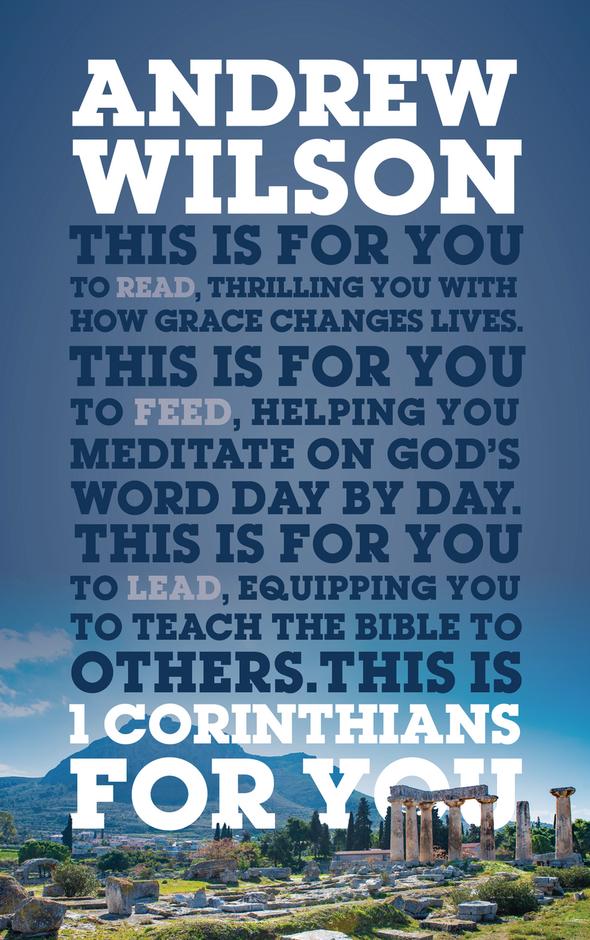1 Corinthians is a tough Epistle for any commentator as the Corinthian church faced a number of theological and practical issues which the commentator must deal with. I commend Andrew Wilson, Pastor at King's Church London, for taking up this task. His commentary is divided into 12 chapters, based on themes, from ‘A Surprising Start: 1 Corinthians 1:1-31' to ‘A Triumphant Ending: 1 Corinthians 15:50-16:24’. It starts with a short but useful ‘Introduction’ which includes the historical and cultural background of Corinth and Paul's founding and influence on the church. At the end of each chapter, there are "Questions for reflection”, designed to stimulate thought and meditation – again another useful feature.
In addition, at the end of the book, there is a glossary which helps readers navigate their way through some of the trickier names and concepts mentioned throughout the book. Finally, its culturally relevant "application" of spiritual lessons will appeal to the younger generation of Bible readers and preachers. For example, linking the "main point of a letter" with the modern-day WhatsApp messages or the subject line of emails (p. 13). Or referencing the Western culture's mistaken idea of love: "The Summer of love, love songs, Love Island and so forth" (p. 143).
Writing a commentary on 1 Corinthians is inevitably tricky because each commentator (and reader) will approach it from a certain bias with which not everyone will agree. The author, for example, interprets 1 Corinthian 11 as supporting head covering for women in the church. As he says "I think Paul is saying that men should not wear a hood, veil or cloak over their heads when praying or prophesying, and women should." (p. 118). Similarly, while p. 149-156 provides a helpful summary of both the cessationist (and its refutation) and non-cessationist positions (the latter building upon the work of Jack Deere in his 1994's "Surprised by the Power of the Spirit"), he supports the latter view that the New Testament sign gifts are normative for today. As he says, "Should we expect miracles, healings, prophecy and languages in the church today?... it is a good rule of thumb to assume that New Testament passages apply to us unless it is clear from the context that they don't." (p. 137).
Space does not allow a discussion of the deficiencies of the non-cessationist views espoused by the author, but it is a view which undermines both the sufficiency and authority of Scripture. From a Free Church perspective, it also contradicts Chapter 1 of the Westminster Confession of Faith ("...which maketh the Holy Scripture to be most necessary; those former ways of God’s revealing His will unto His people being now ceased.")
Overall a useful “first” commentary for the interested, discerning Christian and for message-preparers.
Jenson Lim, Dunblane Free Church


